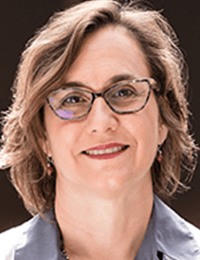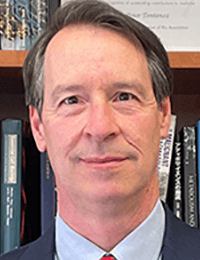The 2014 Stanley J. Korsmeyer Award: Beth Levine, MD

Beth Levine, MD, Howard Hughes Medical Institute investigator, professor, and director of the Center for Autophagy Research at UT Southwestern Medical Center (UTSW), is the recipient of the 2014 American Society for Clinical Investigation’s Stanley J. Korsmeyer Award. The award recognizes Dr. Levine’s fundamental contributions to our understanding of autophagy — literally, “self-eating” — a housecleaning process in which cells destroy damaged proteins and organelles.
Inspired by Stanley Korsmeyer’s co-discovery of Bcl-2 as a B cell lymphoma oncogene, Dr. Levine began her independent research career by searching for proteins that interacted with Bcl-2. These experiments led to the identification of a gene she termed Bcl-2 interacting protein, or beclin 1, and her subsequent characterization of beclin 1 opened the molecular era of disease-related autophagy research. Dr. Levine showed that beclin 1 is an essential mammalian autophagy gene and important for preventing many tumors. One copy of the gene is lost in about of half of human breast and ovarian cancers; beclin 1 prevents lung cancer, liver cancers, and B cell lymphomas in mice; and Bcl-2 and other oncogenes inactivate beclin 1. Dr. Levine demonstrated how Akt, a gene in the insulin-signaling pathway that is activated in many cancers, inhibits autophagy by inactivating beclin 1, allowing unregulated tumor cell growth. More recently, her laboratory showed that the epidermal growth factor receptor — which is expressed at abnormally high levels by many types of cancer cells — deactivates autophagy by binding beclin 1, leading to increased rates of tumor growth and chemotherapy resistance in non-small cell lung carcinomas.
Dr. Levine’s work has also revealed the crucial role of autophagy in defense against intracellular pathogens. Her group showed that autophagy genes protect against lethal alphavirus encephalitis and Salmonella typhimurium infection, and found that a herpes simplex virus neurovirulence factor acts by antagonizing beclin 1. Furthermore, her work suggests that beclin 1 and the autophagy pathway slow the progress of neurodegenerative diseases, increase lifespan, and underlie the beneficial effects of exercise on glucose metabolism.
Recently, Dr. Levine and her colleagues identified an autophagy-inducing peptide, called Tat-beclin 1. Mice treated with this peptide are resistant to several infectious diseases. In additional experiments, the team demonstrated that human cells treated with Tat-beclin 1 are resistant to HIV infection and are more efficient at clearing mutant huntingtin protein aggregates. The peptide may thus have therapeutic potential in the prevention and treatment of a broad range of human diseases. Dr. Levine’s current research focuses on the role of autophagy in normal development and aging, the mechanisms by which autophagy genes suppress tumors, biochemical mechanisms that regulate beclin 1, and the role of autophagy in infection and exercise physiology.
Dr. Levine received her M.D. from Cornell University, completed a residency at Mount Sinai Hospital, and did postdoctoral training in infectious diseases and the neurobiology of viral pathogens at Johns Hopkins University. She was director of Virology Research at Columbia University from 1994 to 2004, and thereafter joined the UT Southwestern faculty. She holds the Charles Cameron Sprague Distinguished Chair in Biomedical Science. Dr. Levine was elected to the American Society for Clinical Investigation in 2000, the Association of American Physicians in 2006, and the National Academy of Sciences in 2013.
Related
Beth Levine receives the 2014 ASCI/Stanley J. Korsmeyer Award in the Journal of Clinical Investigation


